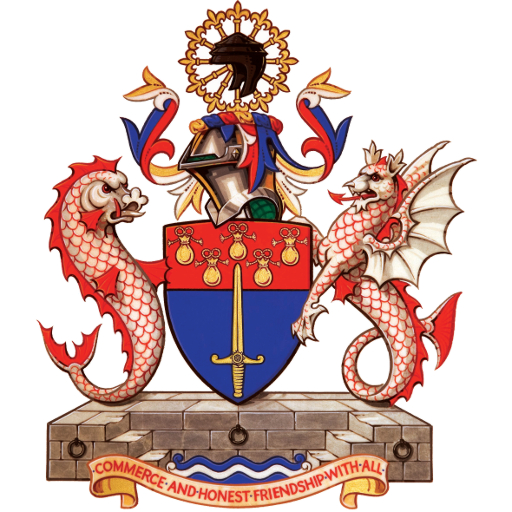On the occasion of this 5th edition of our virtual Phoenix talk webinar series, the World Traders were delighted to welcome two guests – Amina Aitsi Selmi and World Trader Arne Mielken – to share their views and experiences relating to the themes of recovery and regeneration following the ongoing impacts of Brexit and the Covid-19 pandemic.
Our first speaker, Amina, is a transformation executive and career coach, and founder of Next Generation Coaching and Consulting Ltd whose coaching work extends across all sectors, public and private, from Members of the RAF, NHS, large multinational corporations and academia. The focus of her talk was on work cultures that liberate, a very topical issue with the recent overhaul of work environments to virtual and remote settings, whilst organisations try to keep the lights on and run as smoothly as before.
As the audience, we were asked to consider this ourselves and think about how our own personal experience of work had evolved during the pandemic to understand what habits or mechanisms we developed to improve our environment. This begged Amina’s question of what exactly are work cultures and what does it mean for different people?
Amina then shed some light into the theory and history of work cultures, helping unpack the good and bad work culture dichotomy, before breaking down the typical taxonomy of each of these kinds of work cultures. Drawing a comparison with the Luddites, Amina highlighted the key issues to be found with a bad work culture: having a low control of one’s job and an effort-reward imbalance.
Having illustrated that satisfaction with work is not just about money and recognition but also self-fulfillment, she then presented a comprehensive study led by Google which concluded ‘psychological safety’ – a safe space for experimentation and learning – to be the most influential characteristic of a good work culture. This allows workers to better engage, innovate and be more productive, as, in a team setting, colleagues feel safe to take risks and be vulnerable from each other. Drawing on this in her conclusion, Amina subsequently reiterated the importance of good leadership and the ability of questioning assumptions in a work environment and how we can learn from our past and present to improve the future of work.
After getting to grips with how the small things matter in our work environment, our second speaker and World Trader member Arne Mielken emphatically introduced his talk on how the not-so-small-but-often-overlooked aspects of borders and customs are also of paramount importance in our current geopolitical climate. In his words, ‘it is not the sexiest topic’ but he has been ‘geeking out’ on it for the past 15 years as a customs and global trade specialist, since it is currently as key to world trade as trendy new technologies such as 3d printing, bitcoin and blockchain.
For a bit of background, Arne provided three key facts on world trade. The first, is that it is exponentially growing and the only events that have been able to cause a small and short-lived correction on the chart he presented are the 2008 financial crisis and the covid-19 pandemic. Second, trade is changing globally and becoming digital, as we have all seen and experienced with the latest e-commerce revolution. Third, trade is changing in the UK and has taken a much more global allure since Brexit, with the UK joining a Pacific Free Trade agreement and having a target for 80% of all trade agreements to be free trade agreements by 2023.
After this enthusiastic introduction to the changing nature of global trade, Arne shared what initially appeared to be a rather sobering statement: ‘but this all boils down to borders and customs’. However, he quickly disarmed the idea of the border being ‘the growth stopper’ with his 3 ingredients for success – all products of a good collaboration between governments, technologists and the global traders: have a smart border, be and stay compliant and facilitate trade to grow globally in the long term. Drawing examples of emerging technologies applied to borders in France and Singapore, we were shown how this is a great space for innovation.
Finally, as Arne explained why borders and customs are to be embraced and not fought, he also shared the need to call for the reform of regulatory bodies such as the WTO. These will be instrumental in facilitating the continued progress with global trade agreements as exemplified by the opportunity of the WTO’s implementation of the Trade Facilitation Agreement (TFA) – an agreement said to potentially be able to reduce trade costs by an average of 14.3% and boost global trade by up to $1 trillion per year. On a final Brexit note, we were further reminded of the opportunities we have at hand when we realise that the success of the UK’s trading partnership with the EU to date could potentially be transposed on a global scale.
This was certainly an inspiring series in the Phoenix Talks where both speakers provided an eye opening insight on how doing the ‘small’ things well is often in itself the recipe for happiness and success in our worlds of work and global trade.

